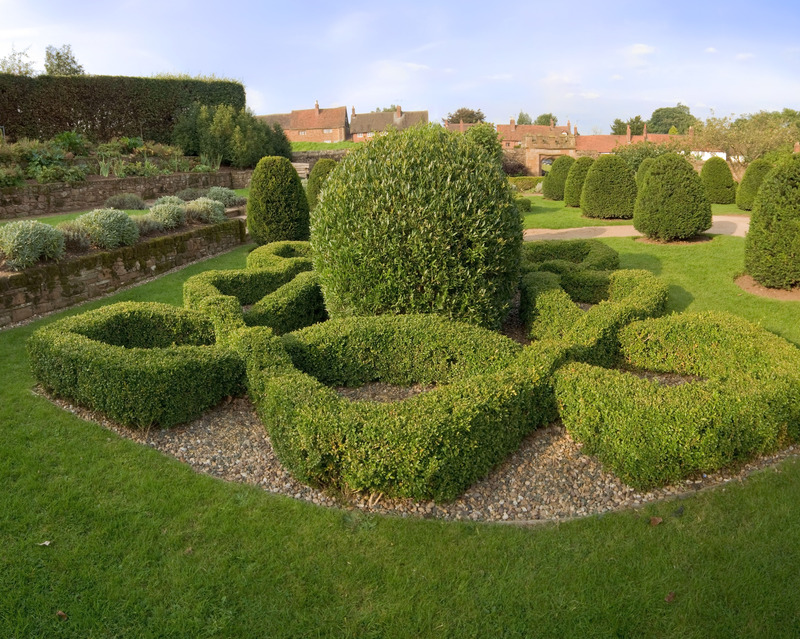Embrace Simplicity and Peace in Your Garden with Zen
Posted on 13/06/2025
Embrace Simplicity and Peace in Your Garden with Zen
In our fast-paced modern lives, finding tranquility at home becomes a precious escape. What better way to cultivate a sense of peace than to embrace simplicity and peace in your garden with Zen? Inviting Zen principles into your outdoor space offers not only visual harmony but also a sanctuary of mind and spirit. From minimalist layouts to artfully arranged rocks and soothing water features, a Zen-inspired garden can serve as your personal retreat--a place to reflect, recharge, and reconnect with nature.
Understanding Zen: Philosophy and Garden Aesthetics
Zen is a branch of Mahayana Buddhism that emerged in China and later flourished in Japan. The word "Zen" literally means meditation. Zen philosophy encourages mindfulness, simplicity, and a deep connection to the present moment and the natural world. These elements are beautifully embodied in the art of Zen gardening, where every component serves a purpose and excess is stripped away.
Principles of Zen Garden Design
- Simplicity (Kanso): Minimalism reigns supreme. Every object and plant has significance, and nothing is extraneous.
- Naturalness (Shizen): Avoid artificiality. Elements are arranged to appear organic and unforced.
- Asymmetry (Fukinsei): Balance through unevenness. Zen gardens rarely rely on perfect symmetry; rather, they celebrate the beauty of nature's subtle imbalances.
- Tranquility (Seijaku): The garden is a peaceful, contemplative space, insulated from life's distractions.
- Wabi-Sabi: This Japanese concept cherishes imperfection and impermanence, encouraging appreciation for the ever-changing qualities of nature.

Creating Your Own Zen-Inspired Garden
Embracing Zen principles in your outdoor space doesn't require a large yard or a hefty budget. With thoughtful choices and attention to detail, even a modest balcony or backyard can transform into a serene oasis.
1. Selecting the Right Space
Start by identifying the area you wish to transform. While expansive gardens offer more opportunities, a Zen vibe can thrive in small courtyards, patios, or even on a balcony with potted elements. What matters most is your intention to create stillness and simplicity.
2. Minimalism: Less is More
Embrace minimalism. Avoid clutter and keep only what truly adds value to the atmosphere. By focusing on simplicity, each plant, stone, or ornament invites contemplation and calm.
- Remove unnecessary decorations.
- Use neutral tones and muted colors for hardscaping.
- Let each feature stand out by providing it space to 'breathe'.
3. Rock Gardens: The Heart of Zen
At the core of Zen garden design lies the kare-sansui or "dry landscape" garden. This classic element employs rocks, gravel, and sand to emulate flowing water, islands, and mountains--symbolizing the natural world in its most distilled form.
- Arrange rocks purposefully: Represent mountains, islands, or living beings.
- Gravel or sand: Raked in soothing, flowing patterns to symbolize water ripples.
- Limit plantings: A few carefully chosen plants, such as moss or small evergreens, suffice.
Tip: When raking the gravel or sand, take your time. Let the meditative process of creation be as important as the final look. The act itself can cultivate mindfulness and peace.
Plants: Choosing Nature's Emissaries for Tranquility
Plants chosen for a Zen-inspired garden should evoke a feeling of peace and resilience. Opt for plants with elegant, understated forms, and those that offer year-round beauty.
- Bamboo: Symbolizes strength and flexibility--with its gentle sway, bamboo adds movement and soft whispering sounds.
- Moss: Evokes age and serenity, and provides lush ground cover with little upkeep.
- Japanese maple (Acer palmatum): Known for delicate foliage and seasonal color shifts; its branching forms create living sculpture.
- Pines: Represent perseverance. Their twisted trunks and evergreen needles embody longevity.
- Ferns, Camellias, Azaleas: These subtler plants bloom quietly, adding depth and softness to the garden.
Water Features: Inviting Calm through Sound and Sight
The soft trickle of water is a hallmark of peaceful gardens. If your space allows, integrate a small pond, a stone basin (tsukubai), or a bamboo fountain (shishi-odoshi).
- Even a simple bowl of water reflects the sky and adds tranquility.
- Water features attract birds, dragonflies, and butterflies, enhancing the sense of life and connection with nature.
- The sound of moving water muffles city noises, deepening your sense of seclusion and peace.
Paths and Stepping Stones: Journeying with Intention
A winding path invites slow, mindful walking. Stepping stones not only guide your journey but also urge you to be present with each stride, mirroring the Zen approach to life.
- Use natural stone for authenticity.
- Arrange stones with gentle irregularity to create an organic, spontaneous feel.
- Let paths encourage pauses--situate them beside contemplative features like old trees or lanterns.
Ornaments and Accents: Subtle Touches of Spirit
Decorative elements in a Zen-style garden are chosen sparingly and with mindful intention.
- Stone lanterns (toro): Illuminate evening spaces and symbolize guidance through darkness.
- Bamboo fences: Delineate space without enclosing it completely; represent harmony and humility.
- Bridges: Even small bridges signify transition or crossing from mundane to sacred space.
- Statues and carvings: These are usually understated, such as a simple Buddha or pagoda, serving as gentle reminders of spiritual calm.
Limit Color and Ornamentation
A Zen garden's aesthetic is rooted in restraint. Rather than using dramatic flowers or multiple colors, focus on shades of green and subtle contrasts. The effect is calming, meditative, and never overwhelming.
Maintenance: Mindfulness in Action
Caring for a Zen-inspired garden is an act of meditation. The repetition of raking, pruning, and cleaning brings you into the present moment and deepens your connection with your surroundings.
- Rake gravel or sand regularly. Restore the flowing patterns as a daily practice of mindfulness.
- Trim plants minimally: Prune carefully to maintain clean lines without over-structuring nature.
- Keep spaces tidy: Remove fallen leaves or debris. This fosters order and clarity--attributes that Zen espouses.
Benefits of Embracing Zen Simplicity in Your Garden
There are profound advantages to adopting Zen-inspired landscapes at home:
- Stress Reduction: The understated beauty and soundscapes lower anxiety and cultivate calm.
- Mental Clarity: Simplicity sharpens focus and eliminates distractions, making room for creativity and reflection.
- Connection to Nature: Zen design immerses you in seasonal changes and the subtle cycles of plants and weather.
- Encouragement of Mindfulness: Gardening becomes a deliberate, peaceful ritual that grounds you in the now.
- Enhanced Outdoor Living: Zen features can turn balconies, patios, or backyards into living spaces as restorative as any room in your home.
Tips for a Lasting Zen Sanctuary
- Start Small: Even one corner can evoke serenity. A single arrangement of rocks and moss makes a world of difference.
- Let Space Be: Allow empty spaces; resist the urge to fill every gap.
- Choose Natural Materials: Stone, wood, and bamboo blend seamlessly with plants and enhance authenticity.
- Attend to Senses: Include elements for touch (smooth stones, velvety moss), sound (water, wind chimes), and sight (soft green, weathered wood).
- Respect the Environment: Use native plants, conserve water, and avoid chemicals for a true harmony with nature.

Inspiration from Famous Zen Gardens
There is much to learn from classic Japanese gardens, such as the Ryoan-ji in Kyoto--a UNESCO World Heritage Site. Its simple arrangement of 15 rocks on white gravel has inspired visitors for centuries. The Zen temple gardens of Ginkaku-ji and Daitoku-ji offer masterful lessons in balance, perspective, and the subtle power of restraint.
Consider browsing images of these iconic spaces or, if you can, visiting them in person or virtually for powerful ideas and lasting motivation.
Conclusion: Invite Zen Simplicity and Peace into Your Garden--and Your Life
By choosing to embrace simplicity and peace in your garden with Zen, you gift yourself more than a beautiful landscape. You welcome a daily opportunity for reflection, calm, and reconnection with the natural world. Through careful selection of elements, attention to natural forms, and regular mindful care, your garden becomes not only a visual delight but a living extension of Zen philosophy.
Whether you seek a refuge for meditation, a peaceful setting for gatherings, or a quiet space to enjoy your morning tea, a Zen-inspired sanctuary awaits you--right in your own backyard.


